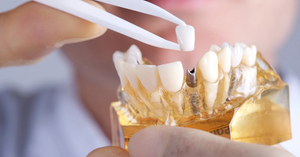Inflammation is the body’s natural response to injury or infection, serving as a protective mechanism to promote healing. However, chronic inflammation can lead to various health issues, including cardiovascular disease, diabetes, and autoimmune disorders. Consuming anti-inflammatory foods can play a pivotal role in recovery by reducing inflammation, alleviating pain, and enhancing overall health. Here’s a comprehensive guide to the top anti-inflammatory foods and their benefits.
1. Fatty Fish
Fatty fish like salmon, mackerel, sardines, and tuna are excellent sources of omega-3 fatty acids, particularly EPA and DHA, which are renowned for their anti-inflammatory properties.
Benefits:
- Reduce inflammation associated with arthritis and other chronic conditions.
- Support heart health by lowering triglycerides and improving blood vessel function.
How to Include in Your Diet:
- Grill or bake salmon for a healthy main dish.
- Add sardines to salads or whole-grain crackers for a quick snack.
- Incorporate fish into soups or stews.
2. Leafy Green Vegetables
Leafy greens such as spinach, kale, and Swiss chard are rich in vitamins, minerals, and antioxidants that combat inflammation.
Benefits:
- High in vitamin K, which reduces inflammatory markers in the blood.
- Contain fiber, which supports gut health and overall immunity.
How to Include in Your Diet:
- Blend spinach or kale into smoothies.
- Sauté greens with garlic and olive oil for a quick side dish.
- Add chopped greens to soups, stews, or omelets.
3. Berries
Berries like blueberries, strawberries, raspberries, and blackberries are packed with antioxidants, particularly anthocyanins, which help reduce inflammation and oxidative stress.
Benefits:
- Protect against cellular damage.
- Improve brain function and reduce the risk of age-related diseases.
How to Include in Your Diet:
- Add berries to yogurt or oatmeal for breakfast.
- Use them as a topping for salads or desserts.
- Blend them into smoothies for a nutrient-rich snack.
4. Turmeric
Turmeric is a golden spice celebrated for its potent anti-inflammatory and antioxidant compound, curcumin.
Benefits:
- Reduces inflammation in conditions like arthritis and inflammatory bowel disease.
- Enhances recovery by boosting the body’s healing mechanisms.
How to Include in Your Diet:
- Add turmeric to curries, soups, or stews.
- Mix turmeric with warm milk and honey for a soothing drink.
- Use turmeric as a spice rub for roasted vegetables or meats.
5. Nuts and Seeds
Nuts and seeds like almonds, walnuts, chia seeds, and flaxseeds are rich in healthy fats, fiber, and anti-inflammatory compounds.
Benefits:
- Provide omega-3 fatty acids, which combat inflammation.
- Support heart and brain health.
How to Include in Your Diet:
- Snack on a handful of mixed nuts and seeds.
- Sprinkle chia seeds or flaxseeds on yogurt, oatmeal, or salads.
- Use almond butter as a spread for whole-grain bread.
6. Olive Oil
Extra virgin olive oil is a staple of the Mediterranean diet and is known for its anti-inflammatory properties.
Benefits:
- Contains oleocanthal, a compound with effects similar to ibuprofen.
- Supports cardiovascular health and reduces joint pain.
How to Include in Your Diet:
- Drizzle olive oil over salads and roasted vegetables.
- Use it as a base for homemade dressings and marinades.
- Cook with olive oil instead of butter or other fats.
7. Tomatoes
Tomatoes are rich in lycopene, an antioxidant that reduces inflammation and protects against certain diseases.
Benefits:
- Improve heart health and reduce the risk of cancer.
- Lower inflammation in the skin, protecting against UV damage.
How to Include in Your Diet:
- Use fresh tomatoes in salads and sandwiches.
- Make homemade tomato sauce for pasta dishes.
- Roast tomatoes with olive oil and herbs for a flavorful side.
8. Ginger
Ginger is a versatile root known for its anti-inflammatory and digestive benefits.
Benefits:
- Alleviates nausea and muscle pain.
- Reduces inflammation in conditions like osteoarthritis.
How to Include in Your Diet:
- Brew fresh ginger tea by boiling sliced ginger in water.
- Add grated ginger to stir-fries, soups, or baked goods.
- Blend ginger into smoothies or fresh juices.
9. Whole Grains
Whole grains like oats, quinoa, and brown rice are high in fiber and other nutrients that help reduce inflammation.
Benefits:
- Lower levels of C-reactive protein, an inflammatory marker in the blood.
- Support gut health and stabilize blood sugar levels.
How to Include in Your Diet:
- Start your day with a bowl of oatmeal topped with nuts and berries.
- Use quinoa as a base for salads or grain bowls.
- Serve brown rice as a side dish with lean protein and vegetables.
10. Green Tea
Green tea is rich in polyphenols and antioxidants that combat inflammation and promote overall health.
Benefits:
- Reduces the risk of heart disease and certain cancers.
- Enhances brain function and supports weight management.
How to Include in Your Diet:
- Sip on freshly brewed green tea throughout the day.
- Add honey and lemon for extra flavor and immune support.
- Use green tea as a base for smoothies or iced tea.
Conclusion
Incorporating anti-inflammatory foods into your diet is a powerful way to promote recovery, reduce pain, and support long-term health. By choosing a variety of nutrient-rich options like fatty fish, leafy greens, berries, and turmeric, you can create a balanced diet that combats inflammation effectively. Combine these foods with a healthy lifestyle, including regular exercise and stress management, to optimize your recovery and overall well-being.









Be the first one to comment on this story.